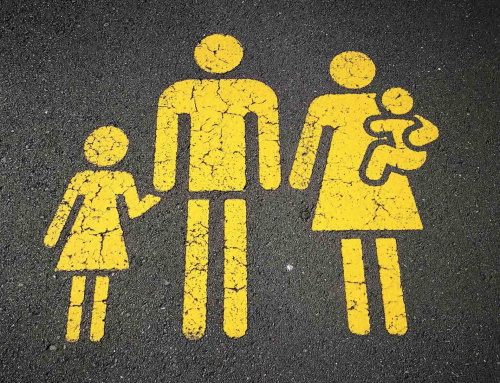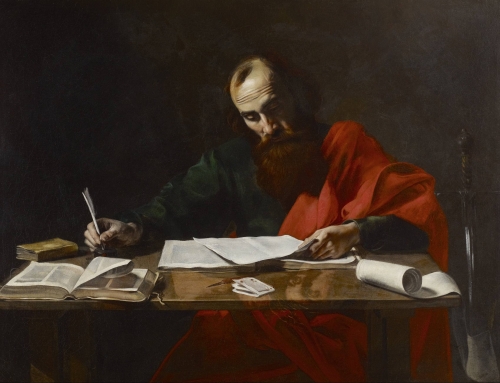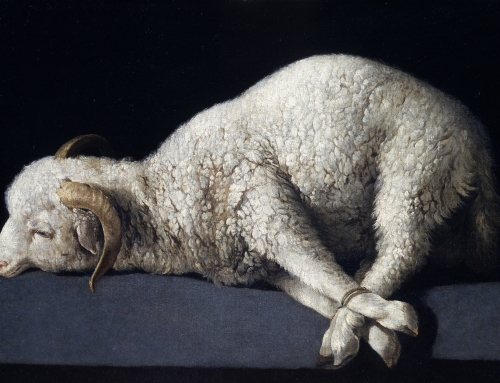Few of us know of the events of November 1st, at 9:40 AM in Portugal. It was All Saints Day, 1755 A.D. Most people were in churches. Then an earthquake of massive proportions hit. Churches crumbled as a result of the massive tremors, estimated to be 8.5 to 9.0 on the Richter scale. Nearly 50,000 people died. How could it be possible to believe in a good God hovering over creation? Some call this the beginning of the march to atheism in Europe.
God had failed. Or had He? Discussions about the ‘presence of God’ suddenly took a turn towards fatalistic skepticism, with various philosophies filling the gap. It appeared that ‘God’ could no longer be trusted to take care of things on earth. Is God angry with humanity with the result that he sends earthquakes to ‘punish’ the people. Or, as some suggest in these days, that has he sent a ‘plague’ in the form of a virus for such ‘punishment’?
Much thinking and writing has come and gone since that day. In many ways, the competing ancient philosophies–Epicurean, Stoic, Platonic–seemed like more trusted alternatives to Christianity. In fact, however, such philosophies had already infiltrated the thinking of most Christians over the centuries, so that what resulted was a polluted well rather than the wellspring of life of which Jesus spoke.
But here we are in July 2020. The global Covid-19 pandemic is devastating the world. Some have said, ‘Don’t worry; God is in control’. What? It sure looks like the virus is having its way. Others are saying that the virus is ‘God’s judgment on the wickedness of humanity’, though without evidence of such a proclamation by God or a historical understanding of pandemics. History, fortunately, corrects us in our myopic bubbles to remind us that tragedies, even of massive proportions, have been part of the human experience. Today it is good to reflect on godly wisdom from the past as well as a reminder from the Bible about what it means to enter into the world’s travail in this present time. First, a look at Martin Luther’s words to his flock.
We remember Martin Luther’s advice, in the midst of various plagues:
With God’s permission the enemy has sent poison and deadly dung among us, and so I will pray to God that he may be gracious and preserve us. Then I will fumigate to purify the air, give and take medicine, and avoid places and persons where I am not needed in order that I may not abuse myself and that through me others may not be infected and inflamed with the result that I become the cause of their death through my negligence. If God wishes to take me, he will be able to find me. At least I have done what he gave me to do and am responsible neither for my own death nor for the death of others. But if my neighbour needs me, I shall avoid neither person nor place but feel free to visit and help him.
Luther: Letters of Spiritual Counsel, ed. T. G. Tappert (London: SCM Press, 1955), 242, from a letter of 1527.
Luther’s words are helpful, healing, and God honouring. But let us look further.
Prof. N.T. Wright offers these suggestions in this present crisis in his book, God and the Pandemic:
There is a gritty wisdom at the heart of this. Luther clearly believed that the ‘normal’ course of action was for a Christian to stay and help, rather than run away, when a plague strikes a district. Yet he knew, even in the days before people understood how germs and viruses worked, that it was quite possible for a well-meaning person to make matters worse. We today know that only too well: someone may carry, and transmit, the Covid-19 virus without knowing they have it. So the natural inclination of a Jesus-follower, to obey Jesus’ call to go and help at the place of danger, even at the risk of one’s own life, looks rather different when that apparently heroic action might easily make matters worse. The generous one- dimensional desire to be a hero, to ‘do the right thing’, needs to be rounded out with the equally generous willingness to restrain apparent heroism when it might itself bring disaster.
Yet this cannot become an excuse for doing nothing. Out of lament must come fresh action. At the very least, clergy (properly trained, authorized and protectively clothed) must be allowed to attend the sick and dying. If, as sometimes seems to be the case, secular doctors suppose that such ministry is superfluous, this must be challenged at every level. As we thank God that in the last two or three centuries the long-term calling of the Church to bring healing and hope has been shared in the wider secular world, we must work with the medical profession, not least to ensure a fully rounded, fully human approach. This applies particularly when people are near the point of death; the hospice movement of the last fifty years has been largely a Christian innovation, privately funded, witnessing to a hope that secular medicine has sometimes ignored.
N.T. Wright, God and the Pandemic.
For Prof. Wright, the action of engaging in ‘lament’ during this crisis is critical:
In a time of acute crisis, when death sneaks into houses and shops, when you may feel healthy yourself but you may be carrying the virus without knowing it, when every stranger on the street is a threat, when we go around in masks, when churches are shut and people are dying with nobody to pray by their bedside – this is a time for lament. For admitting we don’t have easy answers. For refusing to use the crisis as a loudspeaker for what we’d been wanting to say in any case. For weeping at the tomb of our friends. For the inarticulate groaning of the Spirit. ‘Rejoice with those who rejoice,’ said Paul, ‘and weep with those who weep.’ Yes, and the world is weeping right now. The initial calling of the Church, first and foremost, is to take our place humbly among the mourners.
Grief, after all, is part of love. Not to grieve, not to lament, is to slam the door on the same place in the innermost heart from which love itself comes. Our culture is afraid of grief, but not just because it is afraid of death. That is natural and normal, a proper reaction to the Last Enemy. Our culture is afraid because it seems to be afraid of the fear itself, frightened that even to name grief will be to collapse for ever. We have to keep going, we tell ourselves, we have to be strong. Well, yes. Strong like Jesus who wept at the tomb of his friend.
We also should be reminded of Romans 8:28, a beloved verse that is often mistranslated and, therefore, misinterpreted:
In all things God works together with those who love him to bring about what is good.
This reading, found in the margin of the New International Version of the New Testament, properly interprets the grammar. It moves us from a pietistic resignation to an urgency of action to engage in healing and restorative movements of those who believe they are called to introduce ‘New Creation’ initiatives. These movements bring wholeness to the world through what we have learned through science, technology, and medicine. We also bring both lament and celebration to a world that doesn’t know what to do with world-wide crises. We lament and work, with God’s help to restore the world.
Prof. Wright, in his seventh lecture of his Gifford Lectures suggests that there are signposts, albeit broken ones, which point in the present world to the ‘vocations’ for human beings. Most people in most cultures discern these seven signposts:
The Vocational Signposts
There are seven features of human life, which can be observed across different societies and times. I name these ‘vocations’, though they are often present as inarticulate aspirations and impulsions. We know them in our bones….
The seven are Justice, Beauty, Freedom, Truth and Power, Spirituality and Relationships. Our modern word ‘religion’ doesn’t get near this complex of categories, which may be why many today leave ‘religion’ alone. The point about all seven, to put it crudely, is that we all know they matter but we all have trouble with them.
This evening, before sitting down to write down my thoughts, the sky gave its magnificent show of ‘sunset’, with its breathtaking beauty. With the beauty of this evening’s sunset and the inner sense of beautiful moments in past memories, I know the signposts listed above matter. Consider beauty. As Prof. Wright suggests:
Whether it’s a sunset or a symphony, the smile of a child or bunch of spring flowers, beauty makes us more alive. We know it matters. If you live in a prison cell, or the corporate prison cells of the brutalist buildings in old Eastern Europe, the stripping away of beauty is dehumanising. But, as with justice, even when we celebrate and relish beauty, it doesn’t last. The sunset fades. The smiling child becomes a bitter adult. The flowers wither. The music stops. The darkness closes in, making us wonder if what we thought was delight was a random evolutionary quirk, a vestige of ancestral needs, or whether, still worse, Sartre was right and the whole thing is a sick joke at our expense. We are drawn to beauty as to a magnet, but it disappears like a mirage. Why?
The human vocation, the calling of humanity, is to be about the restoration of these seven signposts. In so doing, we become New Creation people. These ‘Vocations’ are ways forward; ways to focus on what may have been lost through the previous centuries’ twists and turns. The Church itself has gotten lost and has absorbed the prevailing atmosphere of Epicurean and Platonic thought. It doesn’t work to care only about ‘our heavenly home’, which is more Plato than Christian. No, the Christian is about living out vocation.
Tonight’s sunset was a fitting way to end a day of work and toil with the hope of tomorrow, if God wills. I will take up the mantle of God’s vocation to bring healing, hope, encouragement, and even lament, when that is appropriate, perhaps even fixing some of the seven broken signposts in my sphere of influence.
So, in these days, we do not cringe at the thought of ‘an angry God’. We engage in the vocation of being the Jesus Way to a world that has not seen it enough.
David P. Seemuth, PhD
Latest posts by David P. Seemuth, PhD (see all)
- Advent Reflections from the N.T. Wright Online Team - December 5, 2022
- YouTube as Public Reading of Scripture - August 29, 2022
- What I Learned From A Week With Professor Wright - June 16, 2022






